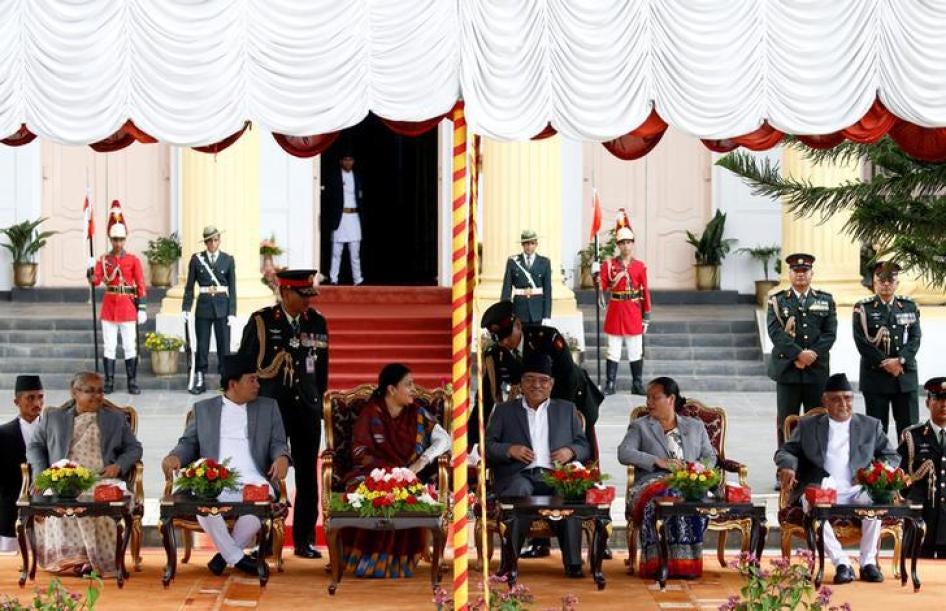(New York, May 3, 2017) – The Nepali government’s attempt to impeach the Supreme Court chief justice is a politically motivated attack on the independence of the judiciary and should be immediately withdrawn, Human Rights Watch said today. On April 30, 2017, numerous members of parliament filed an impeachment motion suspending Sushila Karki, Nepal’s first woman chief justice, accusing her of bias and interfering with executive powers.
The ruling coalition of the Nepali Congress and the Communist Party of Nepal-Maoist filed for impeachment within hours of a Supreme Court ruling overturning the government’s choice for inspector general of police, the nation’s top police officer.
“Regardless of the merits of the court’s ruling in the case, the ruling coalition’s move to impeach Chief Justice Karki is nothing short of an attempt to override a judicial decision,” said Brad Adams, Asia director at Human Rights Watch. “This violates the fundamental principle that the judiciary should be able to function without interference from political forces.”
Politicians supporting the impeachment motion alleged that the Supreme Court, and in particular the chief justice, had acted out of political bias, but they presented no evidence other than that Karki had ruled against their choice for inspector general of police. Nepal’s judiciary has been at the forefront of human rights reform and justice, and over the years has faced many pushbacks by political forces. In particular, the courts have been the only recourse for victims of Nepal’s civil war, which lasted from 1996-2006, and the victims of abuses by government security forces.
The move to impeach Karki has provoked a political crisis in the country, leading to the resignation of Deputy Prime Minister and Home Minister Bimalendra Nidhi, whose Nepali Congress party filed the papers. It has also caused a member of the coalition, the Rastriya Prajatantra Party, to announce its withdrawal from the coalition.
The 2015 Nepali Constitution in its preamble commits to “an independent, impartial and competent judiciary.” Article 20(9) states that, “Every person shall be entitled to a fair hearing from an impartial, independent and competent court or judicial authority.”
The United Nations Basic Principles on the Independence of the Judiciary provide that ‘[i]t is the duty of all governmental and other institutions to respect and observe the independence of the judiciary” (principle 1). Furthermore, “[t]here shall not be any inappropriate or unwarranted interference with the judicial process, nor shall judicial decisions by the courts be subject to revision” (principle 4).
With respect to disciplinary action, “[j]udges shall be subject to suspension or removal only for reasons of incapacity or behaviour that renders them unfit to discharge their duties” (principle 18). Any charge made against a judge “shall be processed expeditiously and fairly under an appropriate procedure” and ensure “the right to a fair hearing” (principle 17).
“The government’s latest attempt to intimidate the judiciary by targeting its most senior judge should be recognized as an attack on all those seeking justice in the courts,” Adams said. “For Nepal to become a rights-respecting democracy, having an independent judiciary is crucial.”








